

In this episode of Better Edge, Quentin R. Youmans, MD, assistant professor of Cardiology at Northwestern Medicine Bluhm Cardiovascular Institute, discusses the recent joint scientific statement from the Heart Failure Society of America (HFSA) and the American Society of Preventive Cardiology (ASPC) published in the Journal of Cardiac Failure. This statement explores the integration of multidisciplinary care models in heart failure management, focusing on proactive strategies for early detection and prevention. It also emphasizes the importance of lifestyle modifications, social determinants of health and a shift in language from "failure" to "function" for enhancing patient engagement. Additionally, the research investigates the role of emerging technologies, such as wearables and AI, in revolutionizing care and proposes a cohesive framework that promotes cardiovascular, kidney and metabolic health to reduce heart failure incidence.
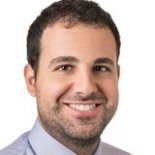
Danny Bega, MD, of Northwestern Medicine Neurology, joins Will Meador, MD, to discuss a major breakthrough in Huntington’s disease — a gene therapy that has shown the first evidence of slowing disease progression. Dr. Bega talks about how the RESET-HD trial is reshaping treatment possibilities and what physicians should watch for as this therapy advances.
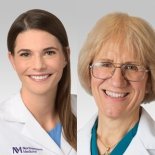
In part two of the Better Edge series on women in physiatry, Larissa Pavone, MD, and Mary Keen, MD, reflect on how the field has evolved — from training structures and technology to the growing presence of women in leadership. They discuss the increasing demands of the specialty, the impact of mentorship and the importance of visibility and support for women entering PM&R.
Looking ahead, they share their excitement about the role of technology and expanded access to education in shaping the future of physiatry. The episode offers practical insights for women navigating the field today and encourages continued growth through collaboration and innovation.
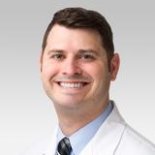
In this episode of Better Edge, Brandon Hamm, MD, discusses an evidence-based approach to ketamine therapy, including patient selection, safety protocols and a newly expanded infusion suite. He compares ketamine with TMS and ECT, addresses common misconceptions and highlights training opportunities for residents. The episode also previews emerging treatments like vagus nerve stimulation.
Clinical impact: This conversation underscores ketamine’s growing role as a safe, effective option within a comprehensive interventional psychiatry framework.
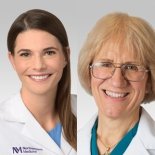
In this episode of Better Edge, Larissa Pavone, MD, and Mary Keen, MD, share their insights on the power of mentorship among women in physiatry. They reflect on their own mentor and mentee relationship, emphasizing how guidance, partnership and shared clinical experiences have shaped their careers and personal growth.
They explore the challenges of balancing clinical demands with personal well-being and the importance of being present for patients and families. The episode highlights how mentorship can come from many sources and evolve over time. Both physicians offer practical advice for women seeking mentorship and underscore the importance of recognizing mentors across disciplines within the rehabilitation team.
This is part one of a two-part series. Be sure to listen to part two where Dr. Pavone and Dr. Keen discuss the evolution of women in physiatry and the future of the field.

In this episode of Better Edge, Jennifer Miles-Thomas, MD, moderates a thoughtful conversation with Anthony Schaeffer, MD, discussing complicated urinary tract infections (cUTIs) and their management. Dr. Schaeffer, who contributed to the recent IDSA guidelines on cUTIs, emphasizes the need to understand underlying causes of recurrent infections rather than treating them as isolated events. The conversation explores critical topics such as antibiotic resistance, effective treatment strategies and the importance of early intervention in febrile cases.
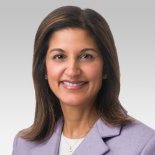
In this episode of Better Edge, Reena Dhanda-Patil, MD, a professor of Otolaryngology – Head and Neck Surgery at Northwestern Medicine, discusses her journey into the field and the importance of a holistic approach to patient care. Dr. Dhanda-Patil emphasizes the rapid advances in sleep medicine and surgery, highlighting her commitment to integrating innovative techniques and multidisciplinary strategies to address complex health issues, particularly obstructive sleep apnea. Through her dedication to personalized treatment and collaboration, she aims to improve patient quality of life and foster clinician growth in this evolving specialty.
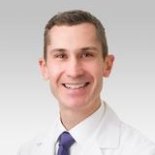
In this episode of Better Edge, Joshua Meeks, MD, PhD, discusses the implications of the FDA's recent approval of TAR-200, a novel therapy for bladder cancer. Having played a key role in the clinical trials and development of this treatment, Dr. Meeks provides an in-depth look at this breakthrough’s potential to transform patient care, especially for those with BCG-unresponsive bladder cancer.
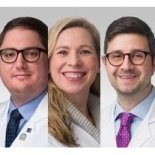
In this episode of Better Edge, a multidisciplinary team gets into the intricacies of diagnosing and managing scleroderma. Join Pulmonologist Anthony Esposito, MD, Rheumatologist Carrie Richardson, MD, and Domenico Farina, MD a gastroenterology specialist with a focus on scleroderma-related esophageal diseases. Together, they share how they collaborate to provide comprehensive care for patients.

Grazia Aleppo, MD, Kasey J. Coyne, MD, and Jelena Kravarusic, MD, PhD, from the Northwestern Medicine Division of Endocrinology, join the Better Edge podcast. The trio discusses a recent clinical trial they led, published in The New England Journal of Medicine. This trial aimed to evaluate the efficacy and safety of using an automated insulin delivery system for treating patients with Type 2 diabetes, a method already well established for those with Type 1 diabetes.

In this episode of Better Edge, C. Charles Jain, MD, the new associate medical director for Adult Congenital Heart Disease at Northwestern Medicine Bluhm Cardiovascular Institute, shares his clinical expertise and strategic vision for advancing adult congenital heart disease (ACHD) care. Dr. Jain discusses his new role and outlines a comprehensive approach to improving outcomes for ACHD. He emphasizes the importance of multidisciplinary collaboration and seamless transitions from pediatric to adult care, key parts of Northwestern Medicine's approach. Dr. Jain also highlights his research interests, commitment to providing whole-person care and upcoming initiatives to expand access and enhance continuity of care at Bluhm Cardiovascular Institute.

In this episode of Better Edge, Bruce K. Tan, MD, discusses the newest clinical practice guidelines for the surgical management of chronic rhinosinusitis (CRS). Dr. Tan covers how treatment paradigms have evolved over the past 15 years, from antibiotic-centric approaches to multifaceted strategies that recognize CRS as a complex inflammatory condition.
He dives into the guidelines’ recommendations on diagnoses, biologic therapies and multidisciplinary collaboration. Additionally, Dr. Tan shares insights on future directions for research and the promise of precision medicine in tailoring effective treatments for a range of patient profiles.
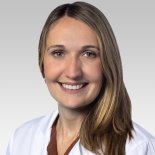
In this episode of Better Edge, Allison S. Komorowski, MD, discusses her findings on the role of anti-Müllerian hormone in managing PCOS. Discover how this hormone’s levels influence ovulation rates, the importance of personalized treatment strategies and the hormone’s potential as a diagnostic tool in fertility treatment.

Join Anton Dietzen, MD, FAAPMR, fellowship-trained in pediatrics, Ishaan Hublikar, DO, FAAPMR, a spinal cord injury specialist, and Julie E. Witkowski, MD, FAAPMR, an expert in brain injury, as they discuss the role of fellowship training in enhancing PM&R care. They share their personal journeys, insights on complex cases and future advances in their fields.

Dr. Clara Peek, assistant professor of Biochemistry and Molecular Genetics and Medicine in the Division of Endocrinology, is here to walk us through a new Northwestern Medicine study she led that was published in Science Advances, suggesting that circadian rhythms play a role in how quickly damaged muscles heal.
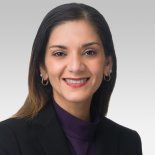
In this episode of Better Edge, Sadiya S. Khan, MD, discusses the AHA's groundbreaking PREVENT-HF paradigm, which aims to implement a risk-based approach to heart failure prevention like other established methods for heart attack and stroke. Dr. Khan covers the alarming trends of heart failure prevalence in the U.S., the importance of early detection, and the integration of traditional and non-traditional risk factors in clinical practice. She also highlights how innovative strategies and emerging technologies like AI are helping shape the future of heart failure risk assessment and patient care.

In this episode of Better Edge, we delve into innovative strategies for enhancing inpatient rehabilitation outcomes in physical medicine and rehabilitation. Anthony Phan, MD, a physiatrist, discusses the importance of multidisciplinary approaches and optimizing consult practices. Join us as we explore effective techniques and best practices for maximizing functional recovery in an acute care setting.

Eric Ruderman, MD, leads a Northwestern Medicine panel discussion with Irene Blanco, MD, Anisha Dua, MD, and Carrie Richardson, MD. Together, they dive into the latest advances in clinical trials and treatment strategies for scleroderma, vasculitis and lupus.
The panel discusses the goals and complexities of contemporary clinical trials, recent breakthroughs in therapies and the innovative potential of CAR-T therapy for managing autoimmune diseases. They emphasize the significance of personalized medicine and the collaboration needed among clinicians, industry collaborators and patient advocacy groups to drive research forward.

In this episode of Better Edge, we discuss the Collaborative Advanced Reconstructive Evaluation (CARE) Clinic, a collaboration between Northwestern Medicine and Ann & Robert H. Lurie Children’s Hospital of Chicago, led by Julia Geynisman-Tan, MD, Julia E. Grabowski, MD, Elizabeth B. Yerkes, MD, and Dana Elborno, MD. Learn how this team uses a multidisciplinary approach to provide leading-edge reconstructive treatments for congenital anomalies and acquired genitourinary tract diseases.

In this episode of Better Edge, Sean W. P. Koppe, MD, moderates a panel of hepatologist, featuring Laura M. Kulik, MD, Andres Duarte, MD, Sarang B. Thaker, MD and Amanda C. Cheung, MD, as they discuss recent advances and challenges in liver research. The conversation addresses such key issues as the timing of immunotherapy in relation to transplants, the role of albumin management and the implications of these factors on patient outcomes. This discussion offers valuable insights to fellow researchers and clinicians navigating the complexities of liver medicine.